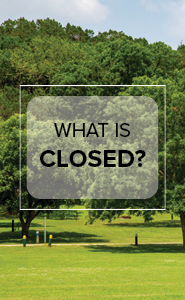While considering land for a community garden, think about location, terrain, sun, water, and permits required.
1. While we do NOT offer pre-approved sites for starting new community gardens, we do have existing gardens you can join. This website has a map to help you find existing community gardens which may be close to your neighborhood. We always recommend people wanting to start a new garden look at existing gardens before applying to start a new garden.
***If you want to build a garden on private property, scroll to the bottom of this page for more information on that process.
The map works best on a desktop or laptop computer. Be sure to zoom in to the neighborhood level to see all of the possible garden sites.
2. Contact 811 to make sure there are no utilities in areas where there will be digging.
If there are utilities, find a different area or a different site.
3. Test the soil at the proposed garden location for heavy metal contamination.
You can use any soil test that includes heavy metals, such as this $25 Soil test from the University of Delaware Soil Test Program.
You will be asked to attach a PDF with your test results in your application. If the results show high levels of heavy metal contamination, you must:
- Inform the sponsoring nonprofit (it may affect their liability insurance).
- Disclose the contamination in the membership agreement.
- Grow edibles in garden beds rather than directly in the soil.
- Re-test the soil annually.
4. Estimate the size of the garden.
Gardens range from only a dozen plots to over 80 plots. We recommend starting small and leaving room to grow. Community gardens typically will start with enough beds to meet the level of interest at the time that they are built, and they add beds over time based on needs and requests.
Considerations for Garden Sites
If the garden is on private land, you will not need a Community Garden Permit and do not need to complete this process. If you're having trouble finding a site on parkland for the garden you want to start, work with the Community Gardens Program staff to make sure it is an eligible site. Things to check on include:
- Is the garden visible and on a street with low traffic?
- Is the garden larger than 4000 sq. ft.? Smaller lots in high-density areas can be approved. Work with the community garden staff.
- Is the land reasonably flat or can it be terraced?
- Does the garden get sun exposure most of the day?
- Is there water access?
- Is the location environmentally critical? Meaning it has:
- Protected trees
- Landscaping
- Fish/Wildlife
- Wetlands
- Construction on slopes
- Erosion protection
- Impervious cover
- Environmental features
- Can the location be developed?
- Will you need a permit?
- If privately owned (empty lot, by a church, etc.), you will need to obtain a lease agreement from the property owner. Check out these sample lease agreements.



